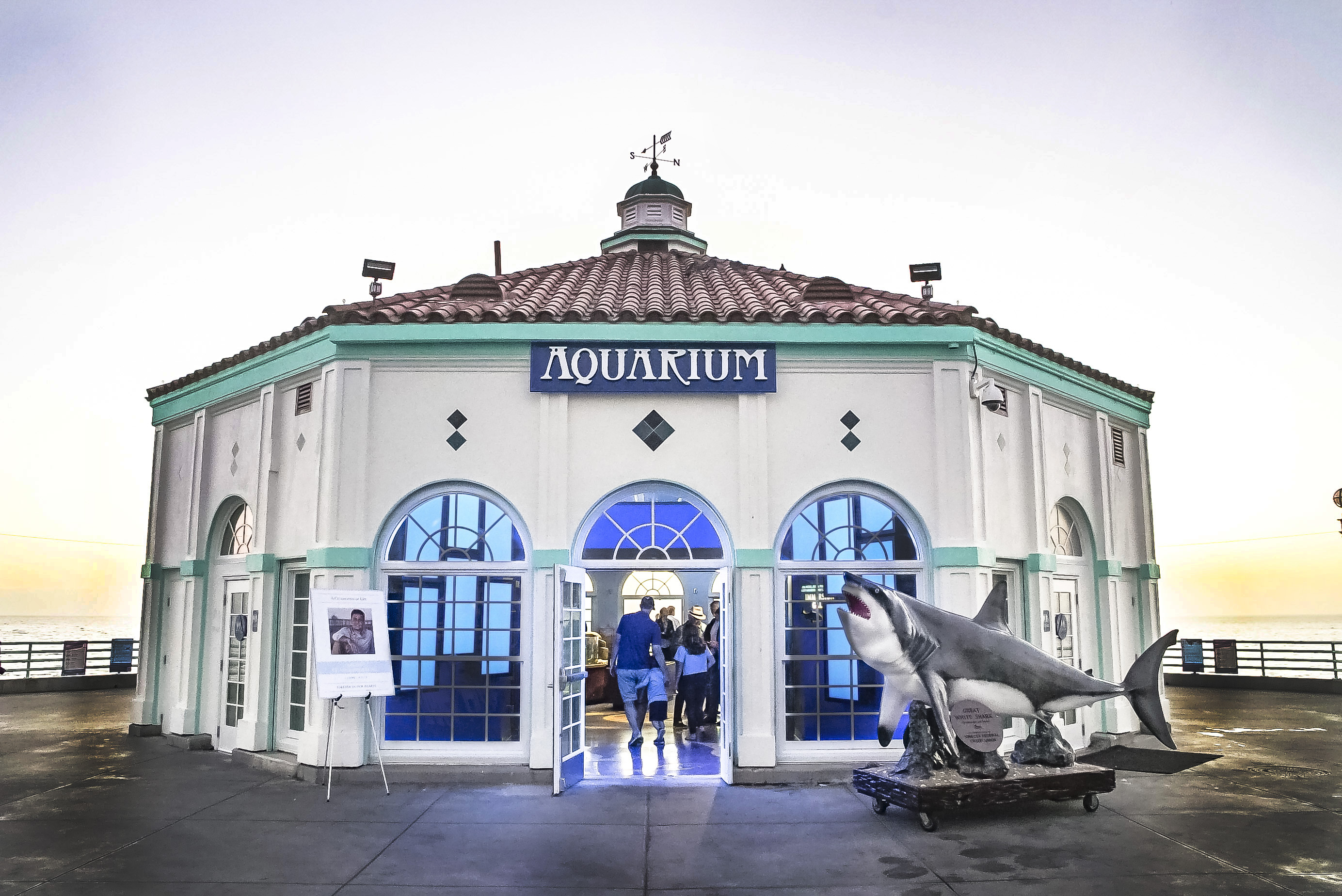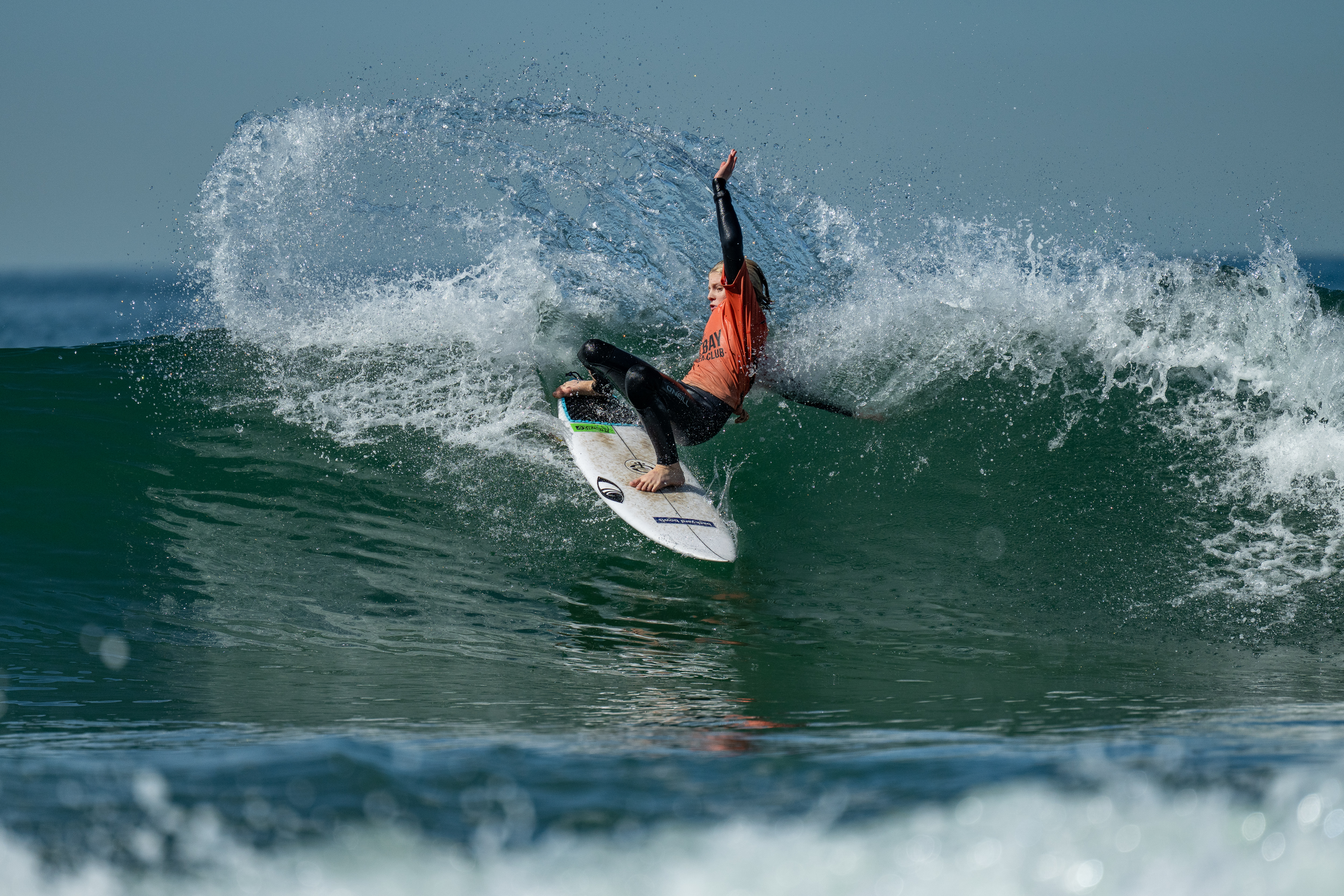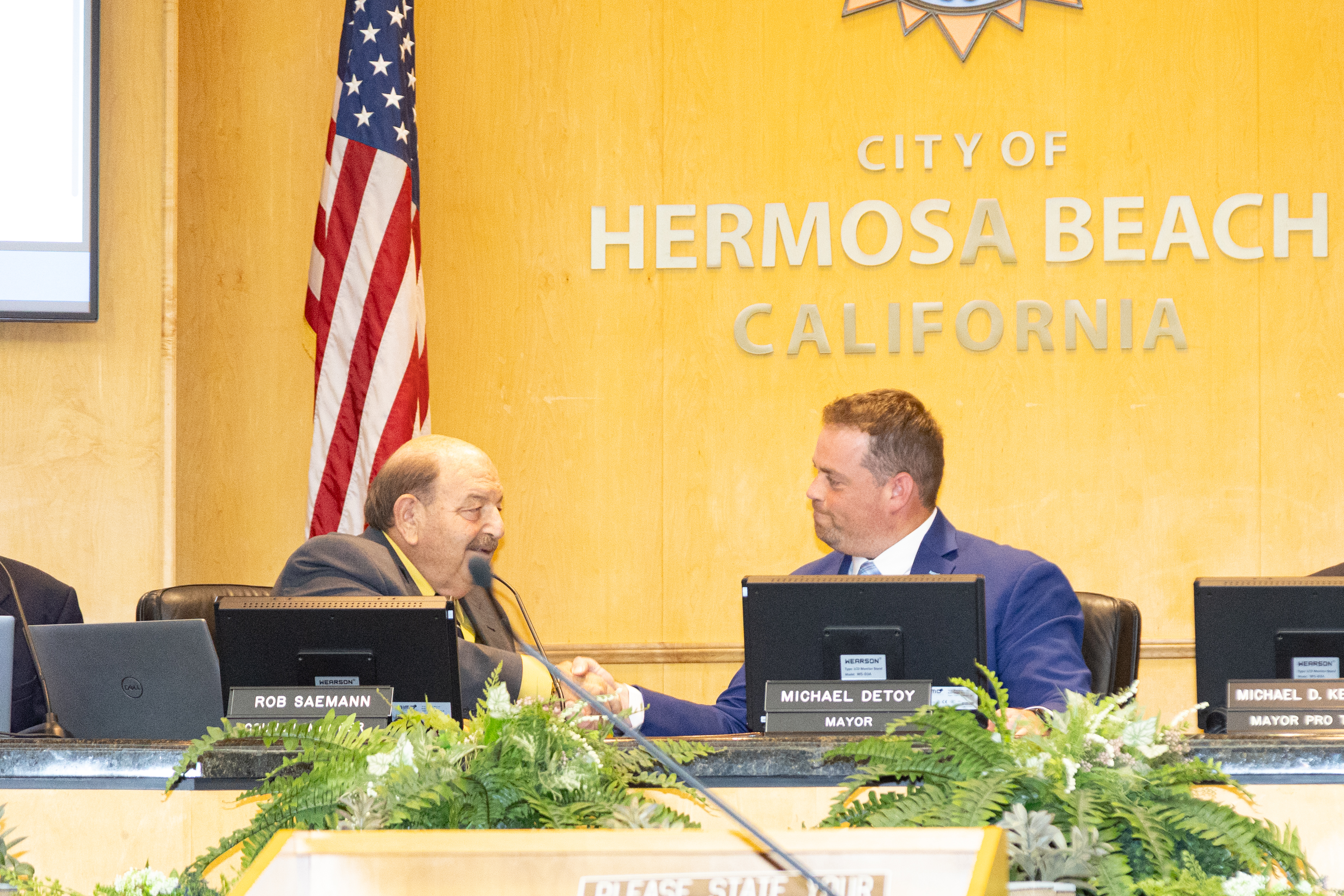by Mark McDermott
The legend of Peff Eick is a many-headed thing.
Jeffery “Peff” Eick is revered locally as a surfer. He was a member of the now legendary Double Deuce Dangler surf crew for 22nd Street in Hermosa Beach that included Tim Kelly, Henry Ford, and Dewey Weber, and he later rode on Weber’s famed surf team. His name is in bronze on the Hermosa Beach Surfers Walk of Fame.
He served two tours as a U.S. Army helicopter pilot in the Vietnam War. His combat missions included the Battle of Hamburger Hill in 1969. His extraordinary service was recognized with a Bronze Star Medal for heroic achievement, and an Air Medal with a V, denoting valor beyond what could be expected of a soldier in direct combat.
One night in 2014, the legend of Peff Eick grew well beyond its local confines. Jack Johnson, the singer and guitarist who became an unlikely pop star on the basis of his simple but perfectly sung and utterly irresistible songs, had just returned to the stage for an encore at the Greek Theater in Los Angeles. He walked up to the microphone to make an announcement.
“This is the first time I ever did this,” Johnson said. “But I am going to bring the guy who taught me how to play my very first chords on the guitar on stage right now.”
Out walked Peff Eick. A stage tech met him at a second microphone and helped him strap on an acoustic guitar. As Eick smiled sheepishly at the sold-out crowd of almost 7,000, Johnson gave a wry explanation of the song they were about to play, Jimmy Buffett’s “A Pirate Looks at Forty.”
“This is the second song he taught me how to play, right here,” Johnson said. “And I think it’s kind of weird because it’s about drinking beer and smoking pot. But this is the song he taught me, so we are going to play it. I was only 14 years old.”

Johnson ambled over to his old friend, and they began picking guitars together, much as they had decades ago on the North Shore of O’ahu, where Eick had taught his buddy’s teenage son how to play this song. “Mother, mother ocean, I have heard you call,” Johnson sang. “I’ve wanted to sail upon your waters since I was three feet tall. ‘Cause you’ve seen it all.”
Eick joined in on vocals. “‘Cause you’ve seen it all,” then took the second verse. “Watched the men who rode you, switch from wood to foam,” he sang, in an easy, folksy drawl. “And in your belly, you hold some brothers, together we have known. You took them home, you took them home.”
Those last lines were not actually what Buffett wrote. Eick, in proper folk music fashion, had rewritten the song for his own personal heroes, including Dale “the Hawk” Velzy, the surfer and shaper whose original shop was on the sand, under the Manhattan Beach pier.
“In 1958 I saw Dale Velzy in front of the Outrigger Canoe Club in Waikiki,” Eick said in an interview this week. “I was 14 and had been riding for Velzy and Jacobs back home. Velzy said ‘When I get back to the mainland I’m going to start making boards with foam. I’ll build you one.”
And the “some brothers you have known” line is also Eick’s.
“Referring to Todd Chesser…..who died on the North Shore and was a huge influence on the Momentum Generation,” Eick said, referencing Kelly Slater, Shane Dorian, and Rob Machado, who began their rise to stardom in the early ‘90s and were documented by filmmaker Taylor Steele’s mini-documentaries, called Momentum. Johnson was also a part of that crew, though he turned to music at 17.
Eick and Johnson met at the North Shore. Jack’s dad, Jeff Johnson, and his mother, Patty, were childhood friends of Eick’s in Manhattan Beach (Jeff graduated from Mira Costa, Class of 61. Eick was kicked out of Costa as a freshman and ended up graduating from Lahainaluna High on Maui in ‘62). In the ‘80s, Eick began to get interested in big wave riding and picked Jeff Johnson’s brain when his friend was back home visiting Manhattan Beach. By the end of the ‘80s, Eick had built a house next door to the Johnsons, in front of the famous Pipeline surf break.
“We had 100 feet of frontage right at Pipeline,” Eick recalled. “It was the Mecca, the center of all of the great surfers of the time, the whole Momentum Generation…. All of those guys hung out between our houses.”
A lot of BBQs took place, and Eick would inevitably bring out a guitar. He had gravitated to music when he was 8. He remembers the moment it hit him. Eick was in a swim class at a pool near where the Burnout surf break is now in Hollywood Riviera, and two speakers were blaring Frank Sinatra and Bing Crosby, the hitmakers of the late 40s and early 50s.
“Oh man, is that cool,” Eick remembers thinking. “I mean, it just got me…It meant a lot to me. I just went, ‘Man, that is music.’”
Years later, after he’d been kicked out of Mira Costa and found his way to Hawaii (both to surf and to finish high school), Eick was crewing on a 57-foot schooner out of Lahaina and three Hawaiian musicians came aboard to entertain the tourists. One played a kettle drum attached to a broomstick bass, one played a ukulele, and the other had a guitar.
“They started playing and I went, I’ve got to have a bit of that,” he said. “I don’t know how I am going to do it but I am going to do it.”
He bought a guitar. His favorite band at the time was the Kingston Trio, and he was happy to realize that their songs were all comprised of no more than three chords. Soon, he was building his own repertoire of songs, and he brought a guitar wherever he went — even when he served in Vietnam.

Years later, while packing up for the season at the North Shore and getting ready to go back to Manhattan Beach, Eick walked next door and left the guitar he’d brought with him in Jack’s bedroom. The guitar was a beauty, a prized Martin O-17, made out of dark mahogany. Johnson marveled at that guitar both at the time, when the essential coolness of living with a guitar dawned on him, and years later when he realized what a significant gift Eick had left behind.
The next time Eick returned to the North Shore, Johnson asked him to teach him how to play. Eick taught him a few songs, among them “A Pirate Looks at Forty,” “Brown-eyed Girl” by Van Morrison, and “Fathers and Sons” by Cat Stevens.
“I think he was 13 or 14,” Eick said. “He grabbed that guitar and went into his room in the back of their house. He was there for the rest of the day, the night, and everything else.”
The next morning, Johnson came out of his room, and Eick happened to be there, visiting with his parents.
“I think I got that ‘Pirate Looks at Forty’ song,” Jack said.
“What do you mean, you got it?” Peff replied.
“I think I can play it,” Jack said.
“Bitchin’,” Peff said.
The kid played the song, absolutely flawlessly. Eick was floored.
“I just marveled at how quickly he could pick it up,” he recalled. “I mean, he’s just such a natural.”
A little later, just out in his yard, Eick heard the boy’s voice drifting through the air. His singing had quickly advanced and possessed a natural beauty, a flow that cannot be taught.
“I heard him, and I go, ‘You know, Jack, you’ve got an absolutely beautiful voice,” Eick said. “And you know, he’s very shy. He goes, ‘I don’t know. I don’t think so.’ And I told him, ‘You do. You just have to sing a little bit louder, like you are singing to someone across the room.’ And that’s the only advice I ever gave him on singing. Within a year, he was better than I was on guitar, clearly. He just had it. And that’s the way he started.’”
Eick and his family called themselves Jack’s first “groupies” when he started a band while attending UC Santa Barbara, and were among those least surprised when his music took off, though it was not exactly a career, in the traditional music industry sense, because Johnson never played by its rules. Humbly but resolutely, he always went his own way.
“He always called his own shots in the music industry,” Eick said. “He said, ‘I’ll do what I do, and you guys can distribute the music, or whatever.’ He had absolute control over the whole thing. They never told him when to make a record. He just said, ‘When I get around to it.’”

This quality reminds Eick of Jack’s father, Jeff, who as a kid in Hermosa was nicknamed “The Professor” “because he was so philosophical,” Eick said. “He was just a great storyteller. You know, the acorn doesn’t fall too far from the tree. Jeff could really tell a story and was so fun to be around. Ross Williams and Kelly Slater both do great imitations of Jeff Johnson, the way he used to tell his stories.”
Peff Eick made his own late entry into the music industry three years ago, at the tender age of 76, releasing an album called “For Posterity.” The album included a gorgeously elegiac song about war that Eick wrote, called “Sons and Daughters” (featuring beautiful guitar work by the late great Pat Dietz) and begins with Eick and Johnson performing “A Pirate Looks at Forty.” Eick said that Jack’s musical gifts remind him of Jimmy Buffett, who passed away this week, in that the songs are unforced, full of warmth and wisdom, carrying meaning but doing so with a deft, light touch.
“He has developed into just an incredible songwriter,” Eick said. “There’s a bit of Jimmy Buffett in all of the stuff he does. People go to his concerts and they come out feeling good. It was the same when you’d go to a Jimmy Buffett concert, you’d come out with a smile on your face. Jack’s got the same sort of karma.”
There’s also a bit of Peff Eick in Johnson’s music. He sings clearly, something not common since the heyday of the early folk movement, but with a clarity that cuts through the noise. In his music, there’s a recurrent pull towards the ocean and the natural world. The second song on Eick’s record, which also features a duet with Kelly Slater, was written in honor of Jeff Johnson, who passed away from cancer in 2009. The song is called “Did You Know My Friend?” and begins, “Through a love of the ocean, I met my friend, it was the summer of ‘58,” he sings. “Beat up old cars, we’d travel the coast, in search of a few good waves. Not a care in the world, to get in our way, we thought that it would last. But all things change, and somehow it became our past.”
But maybe the past has never quite passed. Jack Johnson is who he is in no small part because of his father’s and Eick’s friendship and mutual bond over a love for the ocean. On that night at the Greek Theater nine years ago, Eick’s daughter, who is one of Johnson’s best friends, came out to the audience from backstage before the show.
“Jack wants to talk to you,” she told Eick.
So he went backstage. Jack greeted him. “Do you want to do, ‘A Pirate Looks at Forty?’,” he asked.
“I don’t think so,” Eick said.
Both his daughters, Heidi and Carrie, began pleading.
“Dad,” Heidi said. “When would be the next time you’ll be playing the Greek Theater?”
“Good point,” he said.
As he stood blinking under the stage lights a few hours later, before launching into the song, Eick said, as if to himself, “This is no North Shore BBQ.” But then again, maybe it was. Standing alongside the son of his late friend, he sang beautifully, of pirates and waves and long-gone legends, and for a moment, there was no past or future, just two voices raised warmly in song.
Peff Eick is a pirate looking at 80, and he’s seen a lot of coming and going. Let us all hope for another encore.
“I’m at the age where lots of my friends are dead, and a lot of them are dying,” Eick said. “So you kind of have the freedom to come to this realization that it’s important to do the things you love, and not let all the other noise out there get you down. Especially now, because there’s so much noise out there.”








